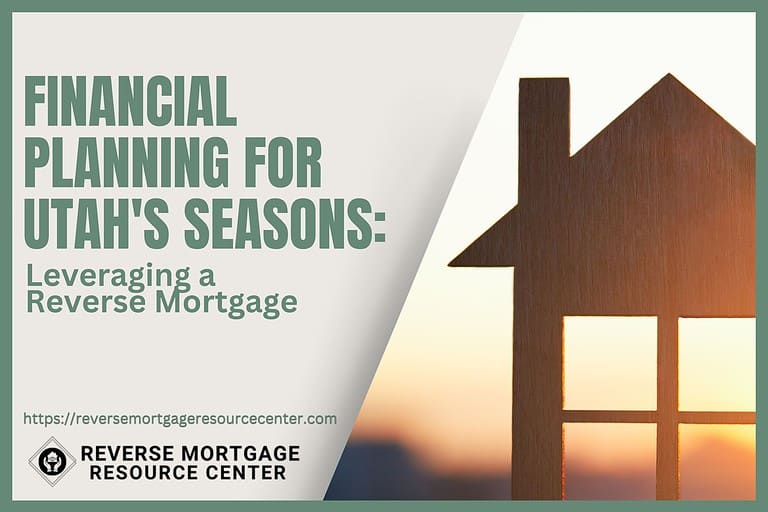Estate Planning and Arizona Reverse Mortgages: Tips for Seniors
Estate planning is a crucial aspect of financial security and peace of mind for seniors, ensuring their assets are managed and distributed according to their wishes. For many seniors in Arizona, reverse mortgages are a viable financial tool that can support their retirement and estate planning goals. In this article, we will explore estate planning strategies for Arizona seniors, focusing on using reverse mortgages and offering valuable tips to guide them in making informed decisions.
Understanding Reverse Mortgages
Reverse mortgages are financial instruments designed to help senior homeowners convert a portion of their home equity into readily accessible funds without selling their homes or making monthly mortgage payments. These mortgages are especially popular as they can help supplement retirement income, which can be used to support their retirement lifestyle or other financial needs.
In Arizona, where a substantial portion of the population consists of retirees, reverse mortgages have become a valuable financial tool for seniors looking to manage their estates effectively. Understanding the basics of reverse mortgages is the first step in incorporating them into your estate planning strategy.
Types of Reverse Mortgages
There are several types of reverse mortgages, but the most common one is the Home Equity Conversion Mortgage (HECM), which is insured by the Federal Housing Administration (FHA). This government-insured option offers various advantages, including competitive interest rates and the ability to use the funds as needed.
Private proprietary reverse mortgages are also available but tend to have higher upfront costs and may not offer the same level of consumer protection as HECM loans. It’s essential to consult with a qualified financial advisor or lender to determine which type of reverse mortgage is best suited to your specific needs.
How Reverse Mortgages Work
Reverse mortgages allow homeowners to borrow against the equity in their homes. The loan amount is typically determined based on the borrower’s age, the home’s value, and current interest rates. Unlike traditional mortgages, borrowers do not make monthly payments on the loan. Instead, the loan balance accumulates over time, and the repayment is deferred until the homeowner moves out of the home, sells it, or passes away.
Reverse mortgages are designed to benefit seniors who intend to stay in their homes for an extended period. When the loan becomes due, the homeowner or their heirs can repay it and keep the home or sell the property to settle the debt. Any remaining equity belongs to the homeowner or their heirs after the reverse mortgage is paid off.
Estate Planning with Reverse Mortgages in Arizona
In Arizona, where the real estate market can be quite dynamic, many seniors have substantial home equity. Integrating reverse mortgages into estate planning can be smart, helping seniors achieve their financial goals and pass on a legacy to their heirs. Here are some tips for seniors in Arizona looking to include reverse mortgages in their estate planning strategies:
Seek Professional Guidance
Estate planning, especially when reverse mortgages are involved, can be complex. It’s crucial to consult with professionals with expertise in estate planning, financial advising, and reverse mortgages. An experienced attorney can help you create a comprehensive estate plan, ensuring that your assets, including your home, are distributed according to your wishes.
A certified financial planner can help you determine the most suitable reverse mortgage product. They can also assess your overall financial situation and guide on maximizing your estate’s value and protecting your assets.
Determine Your Goals
Defining your financial and estate planning objectives is important before incorporating a reverse mortgage into your estate plan. Are you looking to create a steady stream of available funds for retirement? Do you want to preserve your home as a legacy for your heirs? Understanding your goals will help you and your financial advisor make informed decisions about structuring your reverse mortgage.
Understand the Costs
Reverse mortgages come with various costs, including upfront fees, interest, and mortgage insurance premiums. Awareness of these costs and how they will impact your estate is essential. Your financial advisor can help you calculate the long-term financial implications of a reverse mortgage to ensure that it aligns with your estate planning objectives.
Consider the Impact on Heirs
If you intend to pass on your home to your heirs, discussing this with them and making them aware of your estate planning choices is crucial. Heirs may be able to repay the reverse mortgage and keep the property, or they may decide to sell it and use the proceeds to settle the loan. Clear communication can help avoid surprises and potential conflicts in the future.
Establish a Line of Credit
One interesting feature of reverse mortgages is the line of credit option. Seniors can establish a line of credit with a reverse mortgage, a valuable tool for estate planning. This line of credit can cover unexpected expenses, medical bills, or operate as a financial safety net. It’s a flexible option that provides the borrower and their heirs peace of mind.
Potential Pitfalls and Considerations
While reverse mortgages can be a valuable addition to your estate planning toolkit, it’s essential to consider potential pitfalls and drawbacks:
Loan Balance and Equity
The loan balance on a reverse mortgage increases over time, potentially eroding your home’s equity. It’s crucial to have a plan in place to ensure that your heirs can manage the repayment of the loan when the time comes. If you want to leave your home as a legacy, you need to think about how to preserve as much equity as possible.
Interest Accumulation
Interest on a reverse mortgage accrues over time, and the compounding effect can lead to a substantial loan balance. Understanding your reverse mortgage’s interest rates and terms and how they will impact your estate’s overall value is essential.
Eligibility Requirements
To qualify for a reverse mortgage in Arizona, you must meet certain eligibility requirements, including being at least 62 years old and having sufficient home equity. Ensure you meet these requirements before considering a reverse mortgage as part of your estate plan.
Legal and Tax Implications
Estate planning and reverse mortgages have legal and tax implications that must be carefully considered. It’s advisable to consult with an attorney who specializes in estate planning to ensure that your plan complies with Arizona state laws and federal regulations. Additionally, understanding the tax implications, such as potential capital gains taxes for your heirs, is crucial.
REVERSE MORTGAGE RESOURCE CENTER ~LIVE LIFE ON YOUR TERMS~
Our Lending Team has been serving our clients since 2004. We are passionate about serving our clients with integrity to help them achieve their financial goals.







